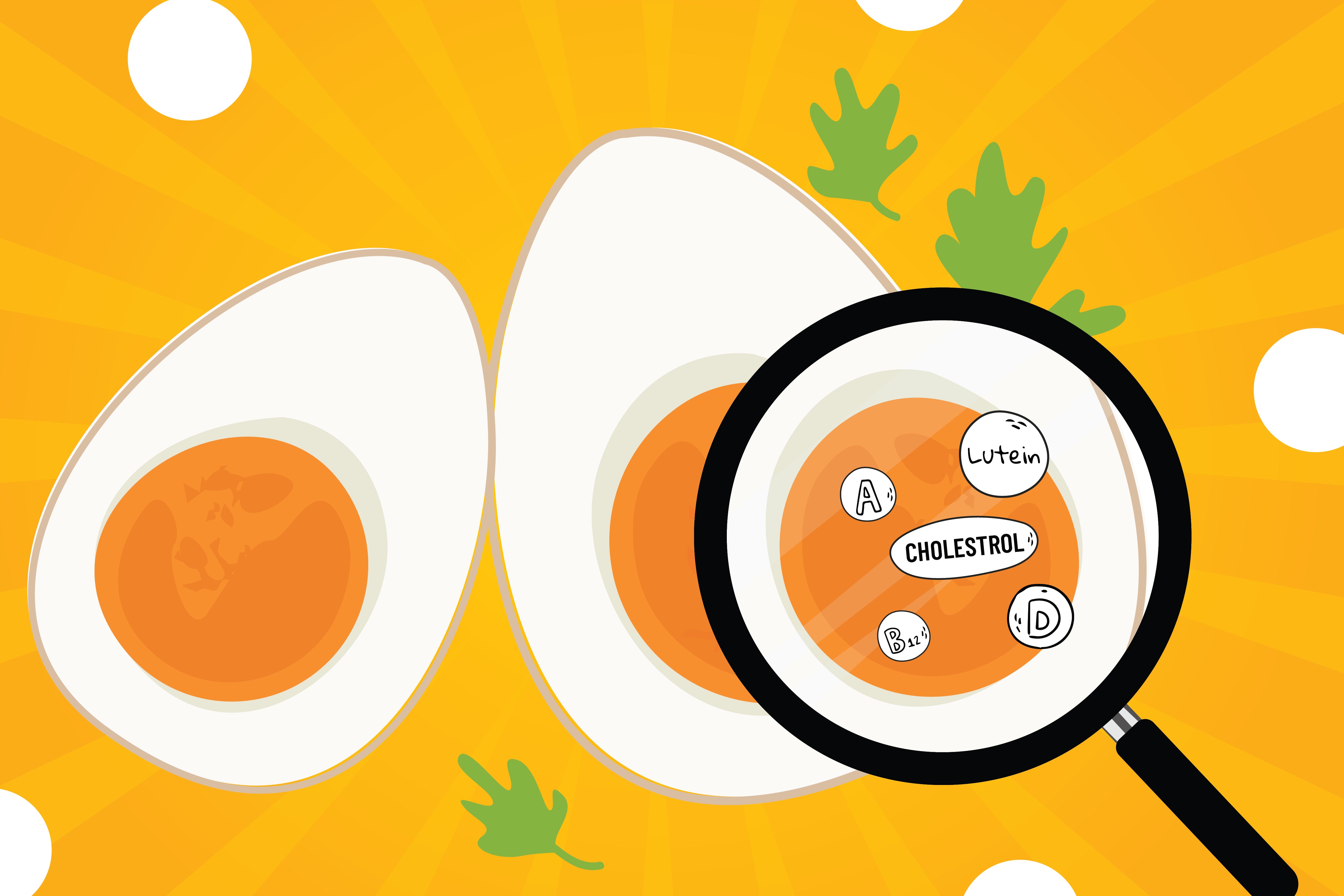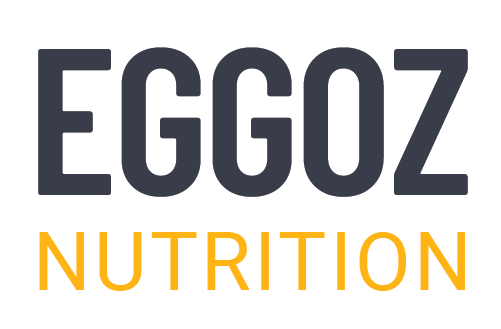
Illustration by Riya Narang
Hello Readers! Welcome to Eggoz Eggspress – your go-to space for easy-to-digest blogs on nutrition and the food facts behind what we eat. I'm Mansi Sharma, and I’ll be bringing you insights that are both interesting and informative. I’d love to hear your thoughts after reading the blog. Feel free to share your feedback to help us improve, and let us know any additional facts you'd like us to include in future posts.
Back in my childhood, it was easy not to complicate food and just eat whatever our mother cooked for us. Whether it was oily like puri or sweet like besan ka laddu — those days were simple, and I could eat whatever I wanted. Eggs were one of them. I used to eat two whole boiled eggs, and I am still habitual of it.
But time never stops, and my adulthood journey started. Due to this, I also became a part of the fashionised health industry, where protein powder is more important than from its actual source, and supplements become a part of our diet. Fats, cholesterol, carbs – are slightly becoming the enemy.
And I changed my eating habits of having only egg whites without yolk – “Just because my body needs more protein.” But what about other vitamins and minerals? Are they gonna be replaced with pills?
Here’s the catch – for vitamins and minerals, a whole egg is important. But there’s a debate on this – cholesterol in an egg yolk.
A large boiled egg contains 186 mg of cholesterol, and egg whites have none. It’s like 1/30th of a teaspoon, which is manageable while maintaining a healthy lifestyle. And we can’t deny the fact that egg yolks are the powerhouse of multivitamins and minerals that our body requires the most.
But before favouring eating egg yolk or only egg white, first understand cholesterol.
Is Cholesterol that bad?
Cholesterol is not that “bad” at all. It’s a waxy substance and is a type of lipid, which is as necessary as other healthy fats. As fats also come under the family of lipids. They help in storing energy for overall health and producing hormones (estrogen and testosterone). Cholesterol also helps in aiding the production of vitamin D and building cell membranes.
And after all of these, do you still think cholesterol is bad?
Maybe no one explained the brighter side of it, or maybe we always think of cholesterol as a villain.
Production of Cholesterol

Illustration by Deepanshu Sharma
Our liver is responsible for the production of 80% of cholesterol, and the remaining 20% we get from our dietary sources. 80% of cholesterol is produced from the raw materials of protein, sugar, and fats, and this cholesterol travels through the bloodstream and helps build hormones and vitamin D.
It means 200 to 300 mg of cholesterol is still considered to be okay to consume. You can get it from an egg yolk that contains around 186 mg of cholesterol.
When cholesterol became so fashionised – people were avoiding it on the basis of the so-called food labels that are claiming “zero or no cholesterol.”
And you’re unknowingly getting it from your healthy food, for example, eggs, nuts, meat, and even from your snacks. Snacks that contain palm oil, and for centuries in southern India, food has also been prepared in coconut oil, which can be another reason for high cholesterol intake.
Here we need to understand the difference between “good cholesterol and bad cholesterol.”
Good Cholesterol and Bad Cholesterol

Illustration by Deepanshu Sharma
Cholesterol produced by our liver is HDL (High-Density Lipoprotein), which is good, and the cholesterol that’s produced from the intake of saturated fat is LDL (Low-Density Lipoprotein), which is also good in moderation. But it is more popularly known as “Bad Cholesterol.”
The image of cholesterol is criticized because it easily deposits in the blood vessels, clots the arteries, which can cause blood clotting issues that lead to severe cardiac disease. It can also cause fatty liver, and HDL takes a lot of work to reverse this.
And after all these, we end up with “Ghar ka khana” or fancy “healthy snacking.” But it never ends with them – the oil-dipped puri and dosa you’re eating every day in coconut oil turn into high cholesterol issues.
Same goes with healthy snacks that are made with palm oils, that are mentioned on the food labels with alternative names such as palm oils, palm stearine, palmoline, vegetable oil, stearic acid, and so on. Hence, these oils take time to digest and increase cholesterol levels.
But there is slight confusion about eggs versus egg yolk. Can I eat it? Or should I avoid it?
Here comes – The….
….Silent Debate – Cholesterol in Eggs and (it is rising)
Hence, eggs have had a bad reputation for years because of their cholesterol content. The cholesterol in eggs is contained in the yolk, which is around 186 to 200 milligrams. And it contains both LDL and HDL types of cholesterol.
But the amount of LDL is still manageable as the egg yolk contains vitamins A, D, E, K, B12, Folate, Iron, Selenium, Choline, Lutein, Zeaxanthin, and Magnesium. With these nutrients, eggs are the savior of your health.
Egg yolk has more unsaturated fat (mono- and polyunsaturated combined) than saturated fat. And these unsaturated fats are heart-healthy and help in nutrient absorption. Saturated fats are okay in moderation, but excess intake from other sources may raise LDL (bad cholesterol).
So the issue is not with the cholesterol in an egg yolk, but with certain dietary habits of what we eat.
After all, moderation is the key. Consuming cholesterol is not that bad, but overconsuming it can cause several health issues.
Not only with eggs, but unbalanced dietary habits can cost a fortune on your health.

